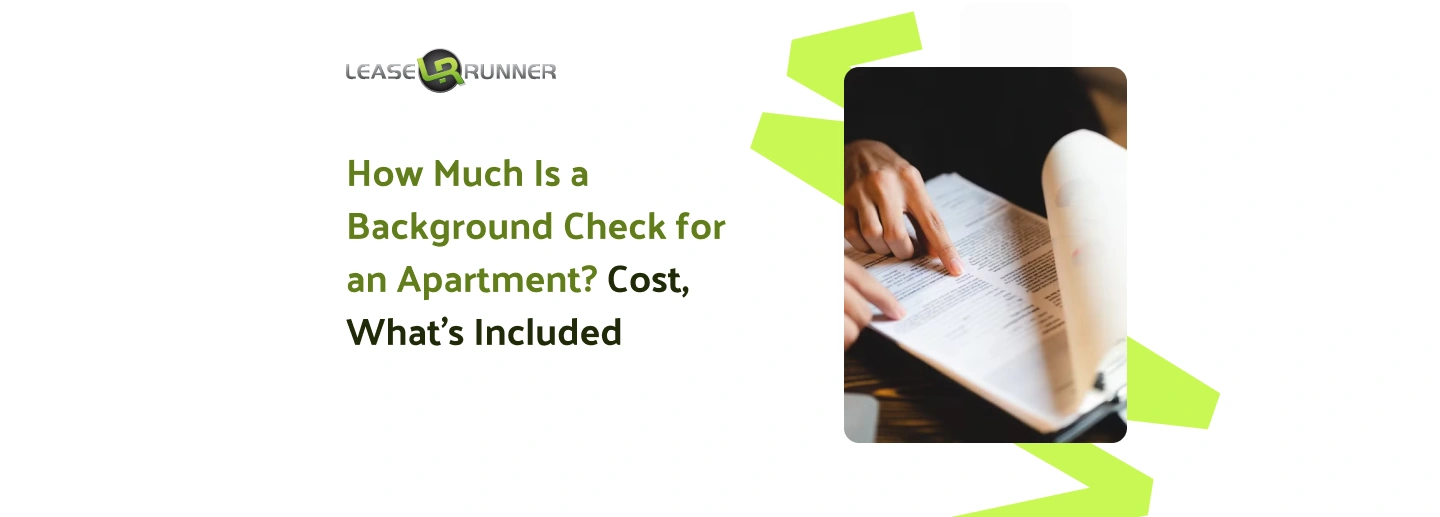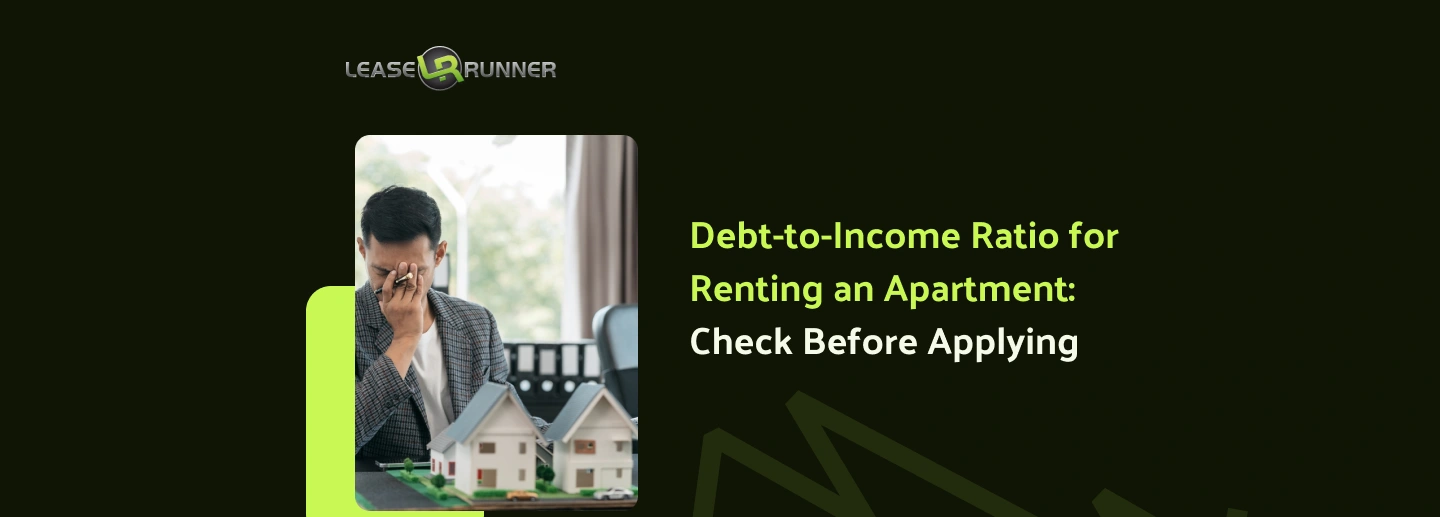What questions can you not ask a potential tenant? As leaders in tenant screening and lease management, we see this concern at the core of every compliant rental process.
Landlords must protect their business and reputation, but crossing the line with illegal questions to ask rental applicants can bring serious risks—from lawsuits to ruined reputations.
Understanding which rental application questions are off-limits is not just about legal compliance—it is fundamental to fair housing. In this article, we lay out every aspect landlords need to know, answer “what questions can you not ask a potential tenant,” and help protect your rental business the right way.

Key Takeaway Table: Fast Facts for Landlords
Why Landlords Need to Understand Illegal Tenant Screening Questions?

Every landlord must know exactly what questions they cannot ask a potential tenant. Here’s why this knowledge matters:
Prevent Discrimination
Discriminatory practices—intentional or not—have no place in property management. Knowing the questions landlords cannot ask ensures you stay compliant with fair housing laws. When you avoid illegal questions to ask rental applicants, you make the rental process fair, build trust with tenants, and reduce the risk of being accused of discrimination.
This strengthens your reputation as a responsible rental operator, attracts a broader pool of applicants, and upholds LeaseRunner’s values of integrity and legal compliance.
Avoiding Legal and Financial Consequences
A lot of landlords minimize the ramifications of one unknowing mistake. Violating laws with improper questions or questions contained in the rental application can result in expensive lawsuits, federal fines, as well as an extremely lengthy process.
The law is not forgiving, and even if a landlord did not mean any harm, asking questions that violate the law, including a rental applicant's immigration status, or inquiring if the applicant has family plans, may open the landlord up to a lawsuit from an offended renter or housing advocacy organization.
The bottom line is - if you do not know what questions you are not allowed to ask a future tenant, you may be putting your assets and livelihoods at risk.
Maintaining Fair and Unbiased Screening
Besides protecting your rental assets and rental applicants, complying with screening helps ensure that landlords maintain an unbiased and documented process that meets the reasonable person test and might not be questioned under the law.
More importantly, the applicants are aware that you are following fair procedures, which increases trust. Avoiding illegal questions to ask rental applicants ensures that every applicant will be evaluated on their accomplishments rather than their background, free of influence from beliefs or variables that do not relate to the application.
Safeguard Reputation - and Business
The mere perception of bias or discrimination can be fatal to a landlord. Social media, local media, and tenant review sites can mark you for life if you are caught asking any unlawful and/or invasive application questions.
Remember, bad news travels fast. Being perceived as a fair, legal, and responsible operator is not only a best practice, but it is critical to your brand and financial liability. LeaseRunner has processes in place to make compliance easy.
What Makes a Tenant Screening Question Illegal?

Let’s dig deeper into what questions you cannot ask a potential tenant—and why some questions cross the line.
1. Questions about Protected Classes or Characteristics
Questions about applicant's race, religion, color, sex, marital status, national origin, family status, disability, sexual orientation, or age are unlawful under the federal Fair Housing Act and, in many places, state and local law, too.
These questions have nothing to do with a tenant’s trustworthiness or ability to pay the rent, and are always strictly illegal.
2. Discriminatory Intent or Effect
A question doesn't have to be overtly hateful to get you in trouble. If a question indicates an intent to discriminate, or if the effect of the question would be to exclude or disadvantage a protected group of individuals, even if the effect is not intentional, the question is still unlawful.
Questions landlords can't ask include anything that can be interpreted as discriminatory, whether the landlord views this as offensive or “just for records".
3. Irrelevance to Tenant Qualification
If a question isn’t directly related to whether a tenant can pay rent, follow the lease, and maintain the property, it’s probably off limits. Illegal questions to ask rental applicants are often irrelevant to the applicant’s actual ability to be a good tenant. Stick to questions about income, rental, and employment history, and references.
4. Questions Prohibited by Specific Laws or Local Regulations
Different states and cities add additional layers to what is or isn’t lawful. For example, California and some other locales explicitly include gender expression or source of income among questions landlords cannot ask. Always check your own location’s legal requirements before finalizing your rental application questions.
What Questions Can You Not Ask a Potential Tenant?

Here’s where we get to the core: what questions can you not ask a potential tenant? We’ve outlined 13 categories, each with practical examples to help you recognize and avoid overstepping:
1. Race, Color, and Ethnicity Questions
Discriminating by race or color is strictly forbidden. Avoid all direct or indirect rental application questions about these protected traits.
Example Questions (Do NOT ask):
- What’s your ethnicity?
- Are you Black/White/Asian?
- “Where is your family originally from?”
- You look (insert race/ethnicity)—are you?
2. National Origin or Citizenship Status Questions
You can verify the ability to lawfully rent (such as through identity or visa documents as required by law). But anything else is illegal.
Example Questions (Do NOT ask):
- Are you a U.S. citizen?
- What country were you born in?
- What’s your first language?
- Where did your family immigrate from?
3. Religion or Religious Practices Questions
Faith-based rental application questions are never justified in screening; these are highly sensitive and prohibited.
Example Questions (Do NOT ask):
- What religion are you?
- What holidays do you celebrate?
- Do you attend church/synagogue/mosque?
- Will you have religious gatherings at home?
4. Gender and Gender Identity Questions
Landlords cannot base decisions on gender identity or ask for any related information, as part of the questions landlords cannot ask.
Example Questions (Do NOT ask):
- Are you male or female?
- Do you identify as transgender?
- What’s your gender assignment at birth?
- Do you plan to transition?
5. Sexual Orientation or Marital Status Questions
These topics belong on the list of illegal questions to ask rental applicants everywhere.
Example Questions (Do NOT ask):
- Are you gay/lesbian/bisexual?
- Who do you live with? Are you married, single, or dating?
- Do you have a partner?
- What is your sexual orientation?
6. Familial Status and Number of Children Questions
While occupancy limits are legal, asking about family status or the number/ages of children is not.
Example Questions (Do NOT ask):
- Are you pregnant or planning to have children?
- How many kids do you have?
- Are you married or divorced?
- Are your children’s parents together?
7. Disability, Medical History, or Mental Health Questions
Both visible and invisible disabilities are protected. Questions about disabilities or medical needs are not allowed and violate ADA (Americans with Disabilities Act).
Example Questions (Do NOT ask):
- Do you have a disability?
- What medications do you need?
- Do you require a wheelchair?
- Any mental health issues to disclose?
8. Arrest Records and Criminal Convictions Questions
Many states now restrict even asking about arrests or records unrelated to rental suitability. Ask only as law allows and avoid blanket inquiries.
Example Questions (Do NOT ask):
- Do you have a felony or misdemeanor record? (unless permitted by local law)
- Have you ever been arrested?
- Have you been in prison?
- What is your criminal background?
9. Age (Explicitly or Indirectly) Questions
Age is a protected class. Only confirm legal contract eligibility, not age specifics.
Example Questions (Do NOT ask):
- How old are you?
- You look young/old for this neighborhood.
- What year were you born?
- Is this your first apartment since turning 18?
10. Public Assistance or Source of Income Questions

In many states, landlords cannot discriminate based on the type of income (e.g., housing vouchers, disability payments).
Example Questions (Do NOT ask):
- Is your rent paid by Section 8?
- Do you get food stamps?
- Are you on unemployment?
- Is your income from welfare?
11. Pregnancy or Plans for Children Questions
Even indirect questions about pregnancy or plans to start a family are off limits.
Example Questions (Do NOT ask):
- Are you expecting a baby?
- Planning to start a family soon?
- Are you or your partner currently pregnant?
- Do you plan to adopt or foster kids?
12. Military or Veteran Status Questions
Some states or cities include veteran status as protected. Federal law does not, but discrimination here is never a good practice.
Example Questions (Do NOT ask):
- Were you in the military?
- Are you a veteran?
- What branch did you serve in?
- Will you be away on deployment?
13. Personal Lifestyle Choices Questions
Questions about legal lifestyle choices not related to tenancy must be avoided.
Example Questions (Do NOT ask):
- Do you drink alcohol or use recreational drugs?
- Do you smoke? (Allowed if directly related to unit rules, but not as judgment or character screening)
- What do you do for fun?
- Do you party often?
Common Mistakes Landlords Make in Tenant Screening

Even well-meaning landlords slip up—it’s all too easy. Here are seven frequent mistakes we see (and help prevent at LeaseRunner):
Failing to Conduct Thorough Screening
Sometimes landlords skip important steps and only rely on a “gut feeling.” Not only does this open the door to unreliable tenants, but it also increases the risk of trying to “fill in gaps” with questions landlords cannot ask. Always rely on standardized, legal processes.
Skipping Important Background Checks
Background checks should include credit and criminal history—but only as permitted by law. Skipping these means missing red flags that may affect your property and your bottom line, but overreaching risks lawsuits.
Not Using Standardized Processes or Applications
A non-standardized approach is an open invitation for bias and error. It’s why LeaseRunner recommends using a legally sound, uniform set of rental application questions every time. For a deeper look, consider reviewing this tenant screening checklist.
Overlooking Income and Employment Verification
Neglecting to check income or work history can result in tenants who can’t pay rent, leading to eviction. Verification must be applied equally to every applicant—never selectively.
Ignoring Legal Requirements
Laws change. Whether it's new state regulations or updated city codes, failing to stay up-to-date (or not consulting resources like LeaseRunner’s guide on questions to ask tenants) could result in using illegal questions to ask rental applicants out of habit.
Neglecting Tenant Communication During Screening
When applicants don't get straightforward information about the process or the data requested, they may suspect unfair bias. Always explain what the process entails and why you’re asking certain (legal) rental application questions.
Not Balancing Speed and Diligence
Trying to fill units too quickly invites mistakes. Always take the time to screen properly, using only legal and relevant rental application questions.
How to Avoid Illegal Tenant Screening Pitfalls?

Legal compliance isn’t just about avoiding what you can’t ask—it’s also about knowing what you can do. Here’s how LeaseRunner helps you avoid pitfalls:
- Use LeaseRunner’s cloud-based, legally vetted rental application for every applicant. It standardizes screening and removes illegal questions to ask rental applicants automatically.
- Reference our up-to-date resource on what questions landlords can ask previous landlords for lawful insight.
- Keep documented processes and maintain written records for every step—consistency is your best defense if your screening ever comes under scrutiny.
- Follow local and state fair housing updates using trusted legal and industry sources (see suggested links below).
- If in doubt, contact a local attorney or fair housing office.
Conclusion
What questions can you not ask a potential tenant? The answer is the cornerstone of ethical, legal, and effective property management. At LeaseRunner, we believe every landlord must be able to identify and remove illegal questions to ask rental applicants from all tenant screening practices.
By focusing only on lawful, objective, and fair rental application questions, you protect your business, your applicants, and your own peace of mind. Remember: Respect and compliance aren’t just legal requirements—they’re keys to long-term rental success.
FAQs
Q1. Can I Ask About Pets or Service Animals?
You may ask applicants if they have pets, as this impacts property rules and rentals. However, a service animal is legally classified as a medical aid, not a pet. Never ask for medical documentation or details about a disability—simply follow ADA guidelines and require only what is legally allowed.
Q2. How Can I Screen Tenants Without Violating the Law?
Stick to objective, job- and rental-related application questions, like source of income, rental references, and employment history. Use LeaseRunner’s standardized compliance tool or consult guides such as tenant screening questions to streamline the process and reduce legal risk.
Q3. What Questions Can Landlords Ask About References?
Landlords may—and should—ask references about rental payment history, property upkeep, noise or neighborhood issues, and lease compliance.
For a more in-depth look, check out our guide on questions to ask previous landlords, ideally paired with our customizable online forms for accuracy and speed.







